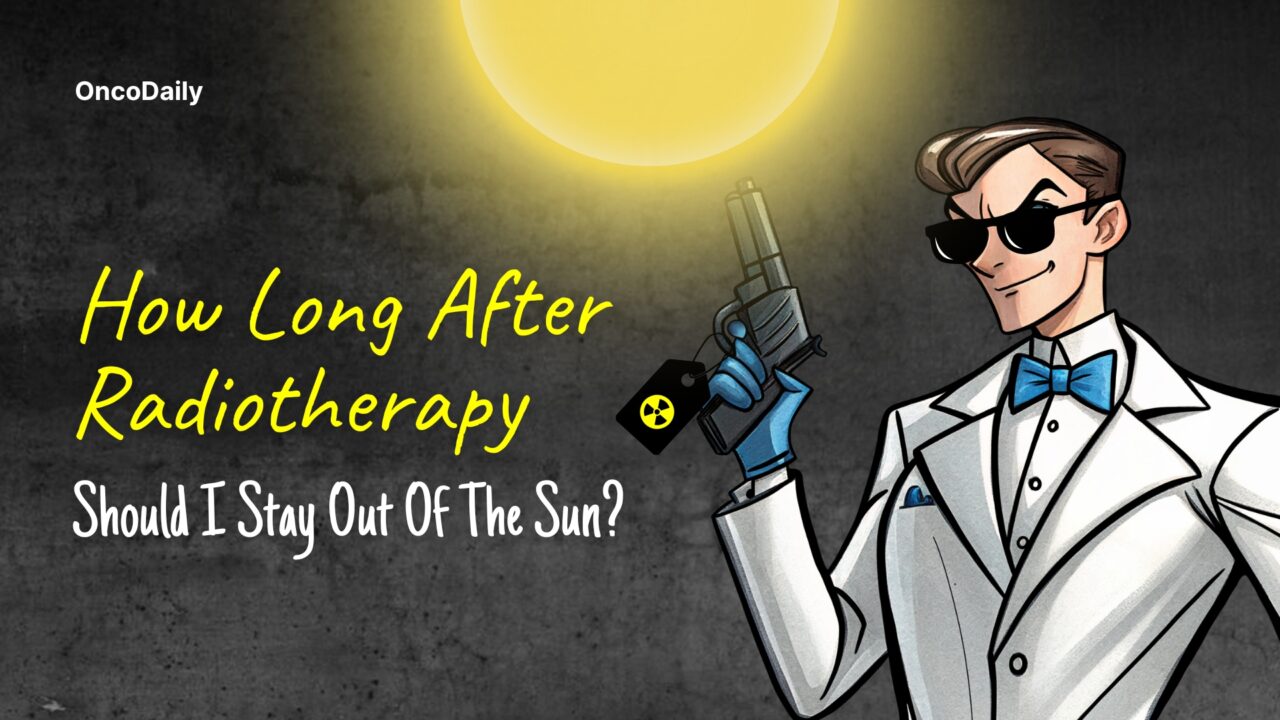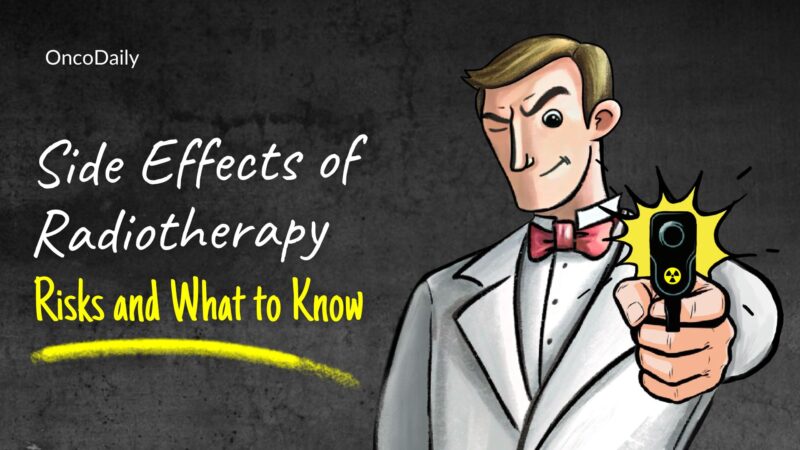
How Long After Radiotherapy Should I Stay Out of the Sun?
After radiotherapy, it’s important to protect the treated area from the sun, as your skin will remain sensitive for up to a year or more. Sun exposure can increase the risk of burns, cause skin irritation, and lead to long-term damage, including skin cancer. Radiation therapy makes the skin more vulnerable to UV light, and areas exposed to radiation are more susceptible to severe sunburns, known as radiation recall. Studies highlight that the skin remains sensitive for months after treatment, emphasizing the importance of using sunscreen with high SPF, wearing protective clothing, and avoiding direct sunlight. Many patients report skin reactions like redness, darkening, and irritation even after treatment ends, reinforcing the need for ongoing care and sun protection.
Why Does Radiotherapy Make Skin Sensitive to the Sun?
Radiotherapy damages skin cells and the skin barrier, leaving it more vulnerable to the sun. The treatment alters the skin’s structure, reducing its ability to repair itself and increasing sensitivity to UV radiation. UV rays can further exacerbate this damage, leading to more severe sunburn, irritation, and long-term risks like skin cancer. This makes sun protection essential for those who have undergone radiotherapy.
How Does Radiotherapy Affect Skin’s Healing Abilities?
Radiotherapy affects the skin by slowing down the regeneration of skin cells, which means it takes longer for the skin to heal after damage. The treatment damages the skin’s deep layers, weakening its ability to repair itself quickly. As a result, areas that have been treated with radiation remain sensitive for months or even years, needing extra care to avoid further damage and promote healing. This delayed cell regeneration makes skin more prone to long-term issues like pigmentation changes and irritation.
How Long Should I Stay Out of the Sun After Radiotherapy?
After radiotherapy, it’s important to avoid direct sunlight for at least 6 months to a year, as the treated skin remains sensitive. The exact duration depends on the type of radiotherapy and the area treated. For instance, areas like the head, neck, and chest may require longer protection. Even after this period, using sunscreen and covering the treated area remains essential to prevent further skin damage. Always follow specific advice from your medical team based on your treatment.
Factors That Affect Sun Sensitivity After Radiotherapy
Sun sensitivity after radiotherapy depends on factors like the treatment area, radiation dosage, and individual skin type. Areas exposed to higher doses, such as the head and neck, are more prone to long-term sensitivity. Skin types with less melanin, like fair skin, may experience heightened sensitivity and slower healing. Dermatologists emphasize the need for extra sun protection in these cases to prevent burns and long-term damage. Patient experiences show that sensitivity varies, but all are advised to avoid direct sun exposure and use high SPF protection.
What to Expect Depending on Treatment Area?
The response to sun exposure varies depending on the treatment area. For the head and neck, where radiation often causes increased sensitivity, patients should avoid direct sun for up to a year and wear hats or scarves. Chest areas, particularly where radiation doses are higher, may experience persistent redness or darkening, requiring careful sun protection and SPF 50 sunscreen. Areas with more skin folds, like under the breast, are also at risk of irritation and should be covered and treated with extra care. Always protect the treated area from direct sunlight and use appropriate sun protection.
Guidelines for Safe Sun Exposure After Radiotherapy
After radiotherapy, protecting your skin from the sun is essential to prevent further damage. Use a broad-spectrum sunscreen with at least SPF 30, ideally SPF 50, and apply it generously to exposed areas every two hours or more frequently if swimming or sweating. It’s important to wear clothing made from UV-blocking fabrics, such as loose-fitting, natural fibers like cotton or bamboo, and a wide-brimmed hat for head protection. Try to avoid sun exposure during peak hours, which are typically between 11 a.m. and 3 p.m. Additionally, use gentle skin-care products like moisturizing lotions that won’t irritate your sensitive skin, and avoid perfumes, talcum powders, or any harsh chemicals.
What Are the Risks of Sun Exposure After Radiotherapy?
Sun exposure after radiotherapy can cause several risks, including skin burns, permanent discoloration, and an increased likelihood of developing skin cancer. Radiated skin is more vulnerable to UV radiation, which can lead to burns or “radiation recall,” where the treated area reacts like a severe sunburn. The skin may also experience long-term changes, such as discoloration or tiny broken veins. Medical professionals stress that the treated area remains sensitive for up to a year after radiation, making sun protection important for life. Clinical studies confirm that patients who neglect sun protection after radiotherapy are at a higher risk for skin cancer in the treated areas.
Can You Safely Go Outdoors After Radiotherapy?
After radiotherapy, it is crucial to avoid direct sunlight and take extra precautions when outdoors. Protect treated areas by wearing sunscreen with SPF 30 or higher, reapplying it every two hours, and covering your skin with UV-blocking clothing. For outdoor activities, choose loose-fitting clothes, wide-brimmed hats, and sunglasses for additional protection. Always avoid peak sun hours from 11 am to 3 pm. You can enjoy the outdoors by staying in the shade, using sunscreen, and ensuring proper clothing to prevent damage to sensitive skin. Always consult your healthcare team for personalized advice.
Does Sun Exposure Worsen Radiotherapy Side Effects?
Sun exposure after radiotherapy can worsen side effects such as increased peeling, irritation, and delayed skin recovery. The skin in treated areas is more sensitive to UV radiation, which can exacerbate damage, leading to burns, redness, or prolonged healing. Medical professionals emphasize avoiding direct sun to prevent radiation recall, where previously treated areas can react like severe sunburns. This makes it essential to protect your skin with sunscreen, avoid peak sun hours, and cover sensitive areas to prevent further complications. Studies support these precautions, highlighting the increased risk of skin damage post-radiotherapy.
How to Care for Skin After Radiotherapy ?
After radiotherapy, it’s important to adopt a gentle skin-care routine to maintain healthy skin and promote healing. Start by using a mild, fragrance-free soap to wash the treated area, gently patting it dry with a soft towel. Avoid rubbing the skin, as this can irritate it. For moisturizing, use products that are dermatologist-approved and specifically designed for sensitive skin. Hydrating creams and lotions with ingredients like aloe vera or calendula can help soothe and nourish the skin. It’s essential to apply a moisturizer regularly, especially after bathing or showering, to prevent dryness and keep the skin hydrated. If the treated skin becomes irritated or damaged, your radiographer or doctor may recommend special dressings or ointments to protect the area. Avoid using talcum powder, sticky tape, or adhesive dressings on the treated skin, as they can worsen irritation.
Additionally, protect your skin from the sun by wearing sunscreen with at least SPF 30, and reapply it every two hours, especially if you’re outdoors. Avoid sun exposure to the treated area for at least six months to a year after radiotherapy, and take extra precautions when the skin is still healing. Your radiographer and medical team can provide specific recommendations based on your treatment area and skin type.
Can You Travel to Sunny Destinations After Radiotherapy?
Traveling to sunny destinations after radiotherapy requires careful planning and precautions. Due to the increased sensitivity of the skin in the treated area, exposure to the sun can cause severe burns, skin damage, or even long-term issues like premature aging or skin cancer. For this reason, it’s recommended to avoid direct sunlight for at least six months to a year after radiotherapy, especially in the treated area. Always wear protective clothing, including wide-brimmed hats, and use high SPF sunscreen, applying it every two hours.
Before traveling, it’s crucial to consult with your healthcare team to assess your specific risks, especially if your radiotherapy treatment involved areas like the head, neck, or chest. If you have had radiotherapy to the chest, be mindful of clothing that might rub against the skin and cause irritation.
If you’re planning to swim during your trip, avoid swimming in chlorinated pools until your skin has fully healed from any radiation reactions, as chlorine can irritate sensitive skin. Additionally, be cautious about potential insect bites, which could lead to infections, particularly if you have lymphoedema or other complications from treatment. It’s also important to remember that live vaccinations, such as for yellow fever, are not recommended during chemotherapy or for six months after, so make sure to check with your doctor about necessary vaccinations before traveling.
What Are the Long-Term Risks of Sun Exposure After Radiotherapy?
Long-term sun exposure after radiotherapy carries significant risks, particularly due to the damage caused to skin cells during treatment. One of the most concerning long-term effects is an increased vulnerability to skin cancer. Radiation therapy weakens the skin’s natural barrier and makes it more susceptible to the harmful effects of UV rays. This heightened sensitivity means that the skin, especially in the treated area, is at a much higher risk of developing conditions like basal cell carcinoma, squamous cell carcinoma, or melanoma over time.
Radiotherapy also causes permanent pigmentation changes. The skin may become darker or discolored in the treated area, and in some cases, small, broken veins may appear. These changes may not cause harm, but they can affect the skin’s appearance and can be a source of discomfort or concern for many patients.

Read More About Side Effects of Radiotherapy: Special Article By OncoDaily
Written by Aren Karapetyan, MD
FAQ
How long should I avoid the sun after radiotherapy?
You should avoid direct sun exposure for at least 6 months to a year after radiotherapy, depending on the treatment area and type.
Can I use tanning beds after radiotherapy?
No, you should completely avoid tanning beds after radiotherapy, as there is no safe amount of indoor tanning.
What SPF sunscreen is best for post-radiotherapy skin?
For post-radiotherapy skin, it is recommended to use sunscreen with a high SPF of at least 30 or higher, ideally SPF 50 for sensitive areas.
Can I swim outdoors after radiotherapy?
You should avoid swimming outdoors until any skin reactions from radiotherapy have healed, as chlorine and chemicals can irritate the treated skin.
Can I go outside without sunscreen after radiotherapy?
No, you should always wear sunscreen with a high SPF, even on cloudy days, to protect treated skin from UV damage.
How long should I wait before exposing my treated skin to sunlight?
It's recommended to avoid direct sunlight for at least 6 months to a year after radiotherapy, depending on the treatment area.
Can I wear makeup on the treated area after radiotherapy?
You can wear makeup as long as it doesn't irritate the skin, but it's best to choose products that are gentle and non-comedogenic.
Is it safe to use skin-care products after radiotherapy?
Yes, but you should use gentle, hydrating, and dermatologist-approved moisturizers that won’t irritate the skin in the treated area.
Can I exercise outdoors after radiotherapy?
You can exercise outdoors, but make sure to avoid sun exposure and protect your skin with sunscreen and appropriate clothing.
Do I need to reapply sunscreen throughout the day after radiotherapy?
Yes, you should reapply sunscreen every two hours or more frequently if sweating or swimming.
-
Challenging the Status Quo in Colorectal Cancer 2024
December 6-8, 2024
-
ESMO 2024 Congress
September 13-17, 2024
-
ASCO Annual Meeting
May 30 - June 4, 2024
-
Yvonne Award 2024
May 31, 2024
-
OncoThon 2024, Online
Feb. 15, 2024
-
Global Summit on War & Cancer 2023, Online
Dec. 14-16, 2023
